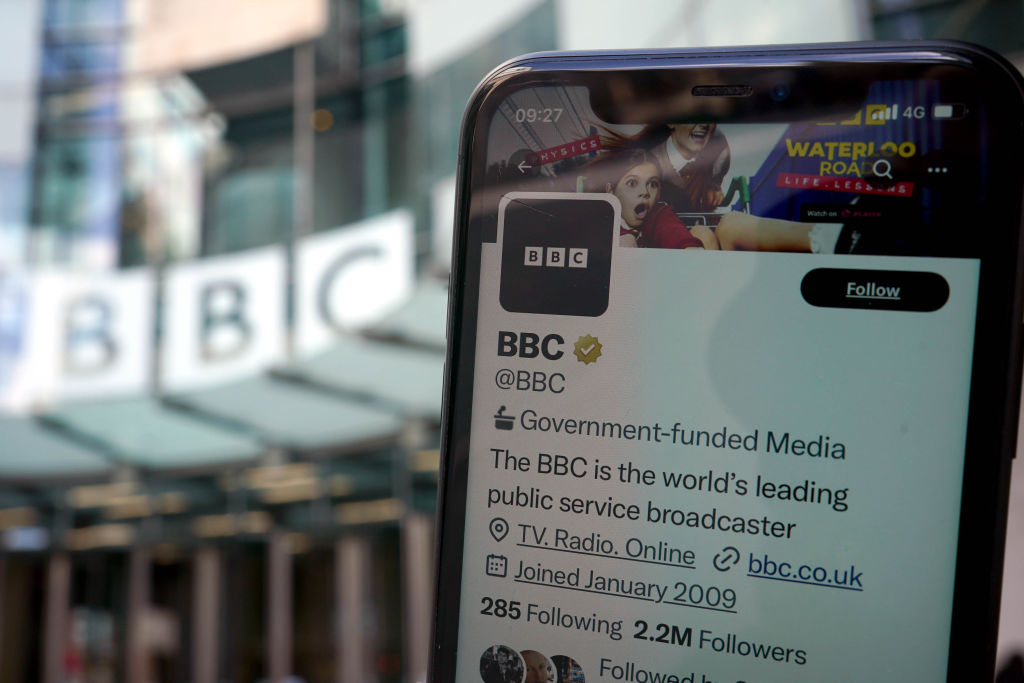
The Canadian Broadcasting Corporation (CBC) is the latest media organization to cease its Twitter activity over concerns about the social media platform’s labeling policy.
Twitter has labeled Canada’s public broadcaster as “Government-funded Media,” which CBC/Radio-Canada dismissed as an affront to its credibility. As of Tuesday morning, Twitter defines the category as “as outlets where the government provides some or all of the outlet’s funding and may have varying degrees of government involvement over editorial content.”
“Our journalism is impartial and independent. To suggest otherwise is untrue. That is why we are pausing our activities on Twitter,” CBC tweeted on Monday.
The CBC-Twitter dispute is the latest one between the platform and various media outlets, including NPR. Over the past week, Twitter has variously applied different labels to outlets such as “state-affiliated media,” “government-funded media,” and “publicly-funded media.”
More from TIME
The disputes began with the British Broadcasting Corporation (BBC) after Twitter labeled it “government funded media,” which the broadcaster rejected. Twitter CEO Elon Musk later said he believes the BBC is one of the “least biased outlets” and the label has since been changed to “Publicly-funded media.”
Below, all the outlets that have had labeling disputes with Twitter.
CBC/Radio-Canada
CBC spokesperson Leon Mar followed the organization’s tweet with a statement Monday afternoon: “Twitter can be a powerful tool for our journalists to communicate with Canadians, but it undermines the accuracy and professionalism of the work they do to allow our independence to be falsely described in this way,” said Mar.
Mar said in a statement the night before that the Canadian government has no sway over CBC’s content or editorial judgements. The broadcaster is publicly funded through a “parliamentary appropriation that is voted upon by Members of Parliament” and therefore its editorial independence is legally protected in the country’s Broadcasting Act.
The organization reportedly wrote a letter to Twitter requesting a review of its label. Twitter CEO Elon Musk then tweeted about the dispute and changed CBC’s tag to “70% Government-funded Media” before settling on “69% Government-funded Media,” a tag that is still present as of Tuesday.
Last week, the leader of Canada’s opposition Conservative Party, Pierre Poilievre, who is campaigning to defund the CBC, wrote an open letter to Musk calling on him to apply a “government-funded media” label.
Read More: Twitter Pulls Check Mark From Main New York Times Account
National Public Radio
CBC follows in the footsteps of National Public Radio (NPR), which quit Twitter on April 12 after receiving a “state-affiliated media” label. NPR receives a small fraction of government funding but disputed that it was “not editorially independent” because of this. NPR said it will no longer post content to any of its 52 official feeds.
“I would never have our content go anywhere that would risk our credibility,” said NPR CEO John Lansing. NPR employees will not be prohibited from posting on the platform but an email memo to staff said “it would be a disservice to the serious work you all do here.”
NPR’s main Twitter account now carries a “Government-funded Media” label.
Public Broadcasting Service
The Public Broadcasting Service (PBS) joined NPR in quitting Twitter after it was given the same label. A spokesperson for PBS told Bloomberg: “PBS stopped tweeting from our account when we learned of the change and we have no plans to resume at this time. We are continuing to monitor the ever-changing situation closely.”
PBS’s main Twitter account now carries a “Government-funded Media” label.
British Broadcasting Corporation
The BBC was initially marked as “Government-funded Media” before Musk agreed to change it to “Publicly-funded media.” The BBC disputed the label because it is funded through the British public’s license fee, which is a flat fee paid by households using television and streaming services on any device, rather than any government body.
In an interview with BBC News’ North America technology reporter James Clayton on April 11, Musk said he was willing to make the change because “we’re trying to be accurate.” The BBC continues to tweet across its feeds with its updated label.
More Must-Reads from TIME
- Cybersecurity Experts Are Sounding the Alarm on DOGE
- Meet the 2025 Women of the Year
- The Harsh Truth About Disability Inclusion
- Why Do More Young Adults Have Cancer?
- Colman Domingo Leads With Radical Love
- How to Get Better at Doing Things Alone
- Michelle Zauner Stares Down the Darkness
Write to Armani Syed at armani.syed@time.com